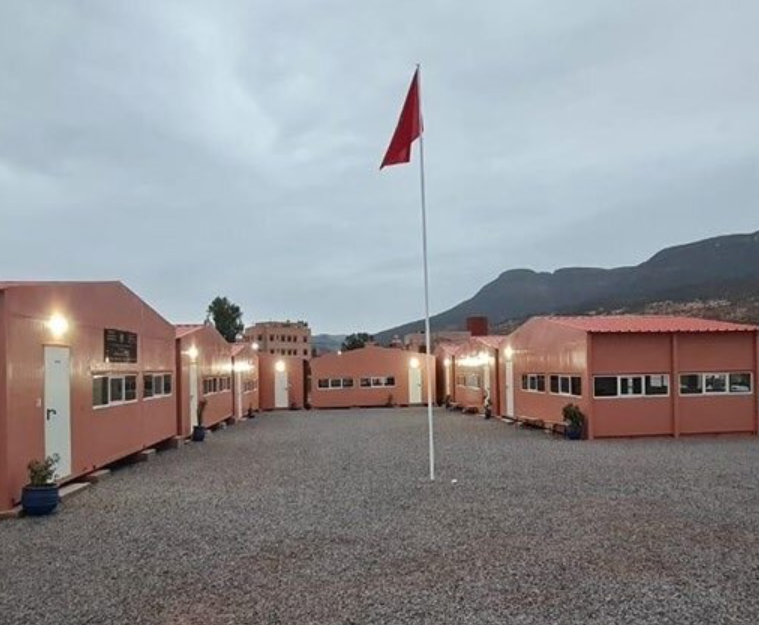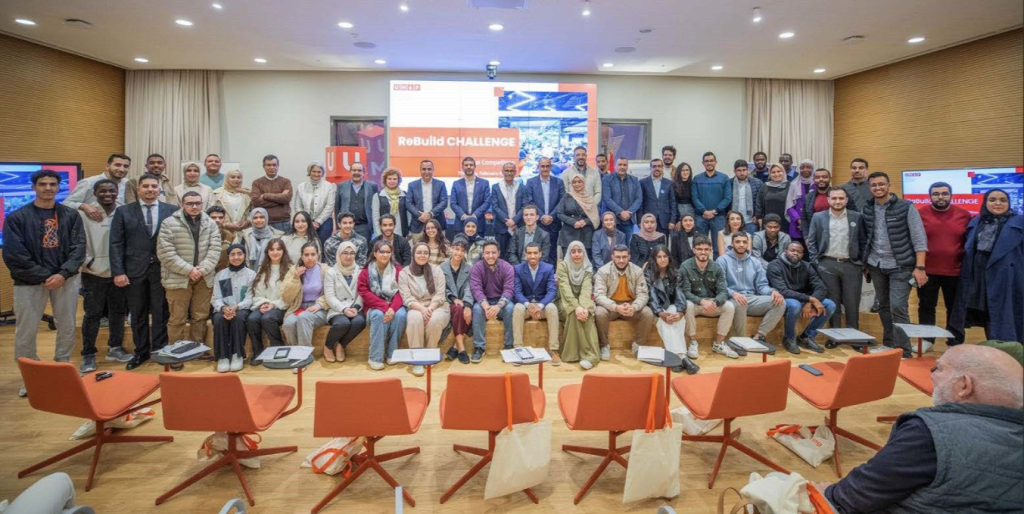On the 8th of September 2023, Morocco faced a seismic event that forever altered the lives of its people. A powerful 6.9 magnitude earthquake struck, leaving a trail of destruction in its wake. Entire communities were shattered, with homes, schools, mosques, and vital infrastructure reduced to rubble.
The earthquake claimed the lives of 2,960 individuals, while 5,674 others were left injured and countless more displaced. In the immediate aftermath, a wave of solidarity swept across the nation. The Royal Armed Forces, local authorities, officials, NGOs, and citizens rallied together to provide aid and support. Among these responders was the University Mohammed VI Polytechnic (UM6P), which quickly joined forces with local authorities and other stakeholders to assist in the critical operations. These efforts included clearing roads to reconnect isolated villages, providing essential supplies such as food, water, and temporary shelter, as well as offering medical care and evacuations to the nearest hospitals for the injured. As the initial relief efforts began to stabilize the situation, UM6P recognized the need for a sustained, long-term commitment to the region’s recovery. This led to the launch of the Rebuild initiative, which aims to not only support the ongoing rehabilitation efforts but also to foster collaboration and dialogue among all University departments. In doing so, UM6P embodies its inclusive vision, demonstrating a dedication to the region’s recovery and the objective of the ReBuild program is to transform the Al Haouz seismic disaster into an opportunity for UM6P.
The affected regions can be seen as a living lab where every academic department can leverage its expertise to create added value and to innovate in areas such as Architecture, Agriculture, Water & Green Energy, and Socio-Economic Development.
From immediate relief
To promote sustainable solutions Through collaboration across various departments at UM6P, the ReBuild initiative embarked on several projects to aid in the rehabilitation of affected regions, involving faculty, staff, and students alike.
Among these projects were efforts to enhance water management practices and supply. Initiatives include a study to assess the earthquake’s impact on water resources, the development of the winning project of ReBuild Challenge “SusHydra” – a water treatment system – and the restoration of irrigation canals. These projects are contributing to addressing water scarcity, a pressing issue in our country, and provide the groundwork for future endeavors, particularly in agriculture, which relies heavily on access to irrigation and clean water.
In agriculture, the focus is on revitalizing agricultural terraces to preserve fertile land and revive pre-earthquake farming activities. Additionally, efforts are made to reconstruct seed systems and support local agricultural cooperatives, providing farmers with essential tools to rebuild and contribute to the region’s recovery and sustainability.
Energy projects aimed to provide isolated regions with access to green energy, improving quality of life while reducing environmental impact, as well as a biogas and compost project that not only manages waste but also provides renewable energy for cooking and heating.
The Rebuild Initiative is also undertaking two significant projects in architecture and education: the construction of 300 modular classrooms for elementary schools and the development of a prototype for future schools.
These efforts not only meet the urgent requirement for safe and contemporary learning spaces but also establish new benchmarks for sustainable architecture. The projects are expected to significantly influence education by providing students with favorable learning environments that enhance academic achievements and overall well-being.
A significant undertaking of the ReBuild initiative is socio-economic development, empowering affected communities to turn crisis into opportunity. Projects aim to bridge gaps between these communities and more privileged populations, empowering local families and entrepreneurs men, women, and youth – to engage in sustainable income-generating projects. The Douar Aourir socio-economic development project, Imlil Hospitality, ReBuild Smile, as well as two of the winning projects of the ReBuild Challenge- Weave on Demand and Moutiglay – are instrumental in this effort.
ReBuild together In the ongoing efforts to rebuild the Al Haouz Region following the devastating earthquake, the ReBuild initiative at UM6P has taken a unique approach. Rather than simply proposing solutions, the initiative acts as a catalyst, bringing together various departments and stakeholders to transform the region into a living lab where every department creates value and innovates. This approach aims not only to address the immediate challenges but also to create a sustainable and thriving community that surpasses its pre-earthquake state. Central to the success of the Rebuild initiative is the active involvement of the community. Students, faculty, staff, and other stakeholders have all played a crucial role in driving innovation and developing impactful projects, engaging around 16 departments and entities within UM6P. This engagement underscores UM6P’s commitment to its communities, demonstrating its dedication to providing support and expertise in times of crisis. One of the standout initiatives that has mobilized students is the ReBuild Challenge. This hackathon brought together more than 18 teams composed of 3 to 5 students to develop innovative projects for implementation in the affected areas. The winning projects – SusHydra, Weave on Demand, and Moutiglay – are now in the implementation phase, showcasing the power of collective innovation and collaboration. Looking ahead, the ReBuild initiative is set to launch an R&D project call in April, inviting various academic departments to contribute their expertise. This initiative seeks to further leverage the university’s diverse knowledge base to drive impactful change in the earthquake-affected region. Overall, the ReBuild initiative at UM6P stands as a testament to the university’s commitment to innovation, community engagement, and sustainable development. Through its collaborative approach, the initiative is not only rebuilding the Al Haouz Region but also paving the way for a brighter and more resilient future.


By Hassan Kaddouri

Leave a Reply